Signs Of The Asteroid, Imam Mahdi, The Sufyani, Civil War
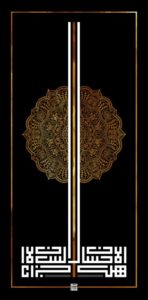 Signs Before The Asteroid
Signs Before The Asteroid
Every time Allah punishes a people He sends Jibril (as) to do so, He did this to Babylon, the people of Ad and Thamud and He will do it again to America who Allah calls the greater Babylon. So the presence of Jibril (as) in these ahadith serves to Prove this sound is the result of Allah’s punishment on a people.
Imam Ali (ra) Said Allah meant this verse against America because it will be fulfilled against them, Quran (26:4):
The Smoke That Will Cover The Earth For 40 Days: “Therefore, watch for the day that the sky brings a profound smoke. (44:11) It will envelop the human race. This will be a painful retribution!” (44:12)
When the first Gulf war occurred Saddam bombed the oil fields as a tactic of war, this caused huge fires that would burn for months, the fires were so large they lit up the night sky all the way to Saudi Arabia, which the Prophet (saws) mentioned in ahadith saying this light would illuminate the necks of their camels.
It is in this context the following ahadith should be understood, another event will occur in the future like the oil fields being set on fire;
Referring to Saudi Arabia; “A huge fire from the East for 3 or 7 nights, darkness (darker than normal night) will be seen in the sky, and there will be a redness in the sky spread across the horizon, unlike the pink in the horizon with which we are familiar.” (Muhammad Al-Barzanji’s book Isha’ah li Ashrat Al-Sa’a)
أمالي الشجري: ج 2 ص 27 أخبرنا عبد الكريم وابن قاذويه قالا: حدثنا عبد الله إملاء قال: حدثنا أبو العباس أحمد بن محمد الجمال قال: حدثنا إسماعيل بن عبد الله قال: حدثنا عبد الله بن صالح قال: حدثني معاوية بن صالح، عن ابن الزاهرية، عن كثير بن مرة أنه قال: قال ابن قاذويه: آية الحدث في رمضان نار تكون في السماء شبيها بأعناق النجب أو كأعمدة الحديد. فإذا رأيتها فأعد لاهلك طعام سنة. قال وربما قال: آية الحدث عمود نار يطلع من السماء
Ibn Qazuwaih said that Kathir bin Murra said: ” The Aya (sign) of the event of Ramadan will be a fire in the sky like the necks of camels or like iron columns (Huge Jets of Fire possibly from an oil field). If you see it, prepare for your family food supplies for a year.” Or perhaps he (Kathir bin Murra) said: “The Aya of the event is a column of fire originating from the sky.” (Ibn Al-Shajari’s Al-Amali Al-Shajaria)
أخبرنا ابن قاذويه، قال حدثنا عبد الله، قال حدثنا محمد بن عبد الرحيم بن شبيب، قال حدثنا إبراهيم بن سعيد، قال حدثنا روح بن عبد الجليل، قال حدثنا نصر بن علي، قال: أول الآية حمرة تكون في السماء
Ibn Qazuwaih said that Kathir bin Murra said: ” The beginning of the Aya (sign) will be redness in the sky.” (Ibn Al-Shajari’s Al-Amali Al-Shajaria)
حدثنا عثمان بن كثير عن جرير بن عثمان عن سليمان بن سمير عن كثير بن مرة قال
آية الحدثان في رمضان والهيش في شوال والنزائل في ذي القعدة والمعمعة في ذي الحجة وآية ذلك عمود ساطع في السماء من نور
Kathir bin Murra said: ” The Aya (sign) of the occurrence is in Ramadan, and commotion (disturbance) is in Shawwal, Nazail in Zul-Qa’da, fighting is in Zul-Hijja, and the Aya (sign) of this is an illuminating column of light in the sky.” (Nuaim bin Hammad’s book Kitab Al-Fitan)
حدثنا عبد القدوس عن عبدة بنت خالد بن معدان
عن أبيها خالد بن معدان قال إذا رأيتم عمودا من نار من قبل المشرق في شهر رمضان في السماء فأعدوا من الطعام ما استطعتم فإنها سنة جوع
Khaded Bin Madan said: ” If you see a column of fire from the East, in the month of Ramadan, in the sky, get food as much as you can, for it is (going to be) a year of starvation (famine).” (Tabarani, Nuaim bin Hammad’s Kitab Al-Fitan )
حدثنا عيسى بن يونس والوليد بن مسلم عن ثور بن يزيد
عن خالد بن معدان قال إنه ستبدوا آية عمودا من نار يطلع من قبل المشرق يراه أهل الأرض كلهم فمن أدرك ذلك فليعد لأهله طعام سنة
Khaded Bin Madan said: ” An Aya (sign) which is a column of fire rising from the East will appear that all people of the land will be able see. Whoever is present (alive) should arrange for his family food supply for one year.” (Nuaim bin Hammad’s Kitab Al-Fitan )
Signs Telling Us Imam Mahdi Will Soon Be Known
“O’ people, surely Allah forbids tyrants and their followers for you and (Allah) bestows leadership upon the best of the nation of Muhammad. Join him in Mecca — he is the Mahdi!”
Most Ahadith have to do with television and fighting over what to broadcast about Imam Mahdi just before and after He emerges (as).
“A call in Ramadan that will be heard by each people in their own language (his advent will be announced on T.V in all countries, in this Ramadan the Asteroid will hit, so it seem people at that time will know it is a sign he is near), announcing the Mahdi’s advent will awaken those who are asleep and alarm those that are awake.” (Muhammad Al-Barzanji’s book Isha’ah li Ashrat Al-Sa’a)
حدثنا أبو إسحاق الأقرع حدثني أبو الحكم المدني قال حدثني يحيى بن سعيد عن سعيد بن المسيب قال
تكون فرقة واختلاف حتى يطلع كف من السماء وينادي مناد ألا أن أميركم فلان
Saeed bin Al-Musayab said: “There will be disunity and dispute until a hand from Heaven (A satellite) and a caller calls that your prince is this person (maybe the significance is that a satellite will be hijacked to make the announcement over live television).” (Nuaim Ibn Hammad’s Kitab Al-Fitan)
حدثنا ابن وهب عن إسحاق بن يحيى عن محمد بن بشر بن هشام عن ابن المسيب قال
تكون فتنة بالشام كان أولها لعب الصبيان ثم لا يستقيم أمر الناس على شيء ولا تكون لهم جماعة حتى ينادي منادي من السماء عليكم بفلان وتطلع كف بشير
Saeed bin Al-Musayab said: “There will be a Fitna in AshSham (Syrian civil war). Its beginning will be like a play of boys (the Arab spring that began because of the bullying of a fruit stand owner by police, who then burned himself alive). Then, the affairs of people will not settle on anything and unity will not be achieved until a caller calls from Heaven: ‘Follow this person’, and a hand appears as a sign. (The significance i think is that government or private satellites will be hijacked to make the announcement because they wont do it, announce it to people so they know, Allahu allam all of this is analogy but this hadith tells us it will occur after the war in syria ends again affirming what imam Ali mentioned in the other hadith in my other email. This syrian war is also mentioned many times in a hadith in relation to Imam Mahdi)” (Nuaim Ibn Hammad’s Kitab Al-Fitan)
حدثنا عبد الله بن مروان عن سعيد بن يزيد التنوخي عن الزهري قال
إذا التقى السفياني والمهدي للقتال يومئذ يسمع صوت من السماء ألا إن أولياء الله أصحاب فلان يعني المهدي
قال الزهري وقالت أسماء بنت عميس: إن أمارة ذلك اليوم أن كفا من السماء مدلاة ينظر إليها الناس
Al-Zuhri said: ” When the (last and third) Sufyani and the Mahdi meet to fight each other, a voice from Heaven will be heard saying (Another public announcement): ‘The people who are loyal to Allah are friends of this person, meaning Al-Mahdi.’ Al-Zuhri said that Asma bint Omais said: ‘The sign of this will be a hand dangling (extended) from Heaven that people will see'(meaning they will clearly know the satellite has been hijacked and this isn’t normal broadcasting).” ( Jalal-uddine AsSuyuti’s Al-Urf Al-Wardi fi Akhbar Al-Mahdi, a part of Al-Hawi li Al-Fatawa)
حدثنا الحكيم بن نافع عن جراح عن أرطاة قال
إذا كان الناس بمنى وعرفات نادى مناد بعد أن تحازب القبائل ألا إن أميركم فلان ويتبعه صوت آخر ألا إنه قد كذب ويتبعه صوت آخر ألا أنه قد صدق فيقتتلون قتالا شديدا فجل سلاحهم البراذع وهو جيش البراذع وعند ذلك ترون كفا معلمة في السماء ويشتد القتال حتى لا يبقى من أنصار الحق إلا عدة أهل بدر فيذهبون حتى يبايعون صاحبهم
Artat bin Al-Munzir said: “When people are in Mina and Arafat (near Mecca, for Hajj), after tribes split into parties, a caller will say “Your prince is this person”. Another voice follows it saying: “He is lying”. Then, another voice says: “It (first caller) said the truth.” So, they will engage in fierce fight …. then you will see a hand dangling from Heaven (Angels don’t argue back and forth or fight, so this is clearly people broadcasting a message. So a satellite will be hijaked to let people know about Imam Mahdi (ra) and official broadcasters will accuse that person of lying to hide the truth). Then, the fight becomes even more fierce (some tribes of Saudi Arabia will be for Imam Mahdi other against Him, some of them will Hijack a T.V station or satellite and others will fight them) such that only the number of (Muslim) people who fought in Badr remains alive (amongst them). So, they go to give Bay’a (allegiance) to the man (Mahdi).” (Nuaim bin Hammad’s Kitab Al-Fitan)
حدثنا الوليد ورشدين عن ابن لهيعة عن أبي قبيل عن أبي رومان
عن علي رضى الله عنه قال بعد الخسف ينادي مناد من السماء إن الحق في آل محمد في أول النهار ثم ينادي مناد في آخر النهار إن الحق في ولد عيسى وذلك نحوه من الشيطان
Ali bin Abi Taleb said: ” After the Khusf (land collapse, Europe sends an Army from Sham against Imam Mahdi will will be swallowed by an earthquake), a caller from Heaven calls (Someone will broadcast): ‘The truth is in the family of Mohammad ‘ in the beginning of the morning. Then, another caller at the end of the morning calls (a broadcast from Europe or someone allied to them): ‘The truth is in the progeny of Jesus.’ This (second call) is from Satan.” (Nuaim bin Hammad’s Kitab Al-Fitan)
Huzaifa said that the Messenger of Allah صلى الله عليه وسلم said : “At that point, a call will come from Heaven saying: ‘ O’ people, surely Allah forbids tyrants and their followers for you and (Allah) bestows leadership upon the best of the nation of Muhammad. Join him in Mecca — he is the Mahdi!’ ” (Nuaim Ibn Hammad’s Kitab Al-Fitan, Tabarani, and Abu Amru Uthman bin Saeed Ad-Dani’s Kitab Al-Sunan Al-Waredah fi Al-Fitan)
The Sufyani And Imam Mahdi’s Army
The Pure soul (al Nafs al Zakiya) who will be killed is believed to be a man from Bani Hashem, from the family clan of Prophet Mohammad صلى الله عليه وسلم along with either his brother or sister, the ahadith are not certain which.
إذا قتل النفس الزكية وأخوه يقتل بمكة نادى مناد من السماء إن أميركم فلان وذلك المهدي الذي يملأ الأرض حقا وعدلا
ويقتل أخوين من قريش من بني هاشم ويصلبهما على باب المسجد رجل وأخته يقال لهما محمد وفاطمة
Ali bin Abi Taleb (ra) said about what the Sufyani does in Mecca: “He (the Sufyani) kills two siblings from Bani Hashem of Quraish, a man and his sister, they are called Mohammad and Fatima. He crucifies them at the gate of the Masjid (in Mecca).” (Nuaim bin Hammad’s Kitab Al-Fitan)After the war in Syria ends Europe will eventually place sanctions on Syria and try to dominate the country in the same way America once did to the rest of the world, by setting up proxy leaders to rule for it that it will support. It will go to the tribe of Asad, the bani kalb and support three warlords from among them, one after the other, who the prophet (saws) called al Sufyani on account of their lineage back to Abu Sufyan the Father of Muawiyah who apposed the Khalifah of Ali (ra) and set up the first dynasty in Islam.
Abu Nadhrah reported: “We were sitting in the company of Jabir bin Abdullah (r.a.) when he said: Soon the people of Iraq will neither receive any food (grain) nor any money.’” We asked, “Why would such a thing happen?” He replied, “Because of the non-Arabs.”(America) He then said: “Soon the people of Shaam (Syria) will neither receive any money nor grain.” We asked as to why this would happen. He replied: “Because of the Romans.”(Europeans) And in the narration of al-Hakim there is the following addition: “Then he said: “By He in Whose Hand is my soul, the matter will return as it began. All Iman will return to al-Madinah, as it began from there, until all Iman will be in al-Madinah.” (Muslim)
After describing these events, Jabir (r.a.) then brought the saying of the Messenger of Allah (saws): “There will be in my Ummah a khalifah who will give out wealth in heaps, without counting it.”
Abu Hurairah related that the Messenger of Allah said, “Iraq will be prevented from its dirham (a currency) and its (Qifaz) measurement; Sham will be prevented from its (Mudd) measurement and its Dinar (a currency) and Egypt will be prevented from its Irdab (measurement) and its Dinar (currency). You will recoil to that position from were you started and you will recoil to that position from were you started, the bones and the flesh of Abu Huraira would bear testimony to it” (Muslim)
The Emergence Of The Sufyani Warlords and How Imam Mahdi’s Army Will Secure Rule For Him
Abi Sadek said: ” The Mahdi does not emerge until the Sufyani emerges on the ashes (of the Muslim nation).” (Nuaim bin Hammad’s Kitab Al-Fitan)Iraq is now devastated, Syria is now devastated, and within 10 years after the war in Syria ends; the Arab/Islamic nations will go to war with each other over the treasure under the Euphrates river, then Europe will devastate the coast of Sham (Syria and Lebanon) when it invades Sham outright setting up the rule of the Sufyani on their behalf. This means Lebanon will be destroyed and as Ahadith state it’s people will desert the country completely and go inland towards Arabia, Europe will then invade Egypt and North Africa and Russia will invade North Arabia…All before Imam Mahdi appears.
عن الزهري قال في ولاية السفياني الثاني ترى علامة في السماء
Al-Zuhri said: “During the reign of the second Sufyani, a sign in the sky will be seen.” (Nuaim bin Hammad’s Kitab Al-Fitan)Possibly a significant broadcast, or the first time a station is hijacked to inform the Umma of something, before the other times surrounding Imam Mahdi’s appearance. The First Sufyani will appear after the war in Syria, when Europe invades Sham and then places sanctions on it. When he dies not long after this he will be replaced by another. The first Sufyani will be a leader that flees to Europe seeking their aid, the prophet (saws) said he will be the one who invites the Europeans into Islamic lands.
Abdullah bin Amr Ibn Al-Aas said: “If a Khusf (land collapse) occurs to an army in Bayda (near Mecca), that will be the sign of the appearance of the Mahdi.” (Nuaim bin Hammad’s Kitab Al-Fitan)This sign indicates that the person this army was sent to attack is the Mahdi (ra), the land collapse is the last of three major Earthquakes at the end of time, the second will occur before this in Syria.
قال رسول الله صلى الله عليه وسلم خروج السفياني بعد تسع وثلاثين
Yazid bin Habib said that the Messenger of Allah صلى الله عليه وسلم said: ” The coming out of the Sufyani is after thirty nine (Months ?).” (Nuaim bin Hammad’s Kitab Al-Fitan)This may mean He will emerge 3.25 years (39 months) after the war in Syria ends. As other hadith indicate some of the companions counted events from the war in Syria.
عن ابن عباس رضى الله عنه قال
خروج السفياني في سبع وثلاثين كان ملكه ثمانية وعشرين شهرا وإن خرج في تسع وثلاثين كان ملكه تسعة أشهر إن كان
بلغني أن السفياني يملك ثلاث سنين ونصف
Sulaiman bin Isa said: “I was told that the Sufyani will rule for three and a half years.” (Nuaim bin Hammad’s Kitab Al-Fitan)The first Sufyani will rule for 2.33 years then the one after him for 3.5 years Imam Mahdi (ra) will face the second and third Sufyani’s. Imam Mahdi (ra) will try to convert the third Sufyani, he will believe, but His mother will have his ear and turn him back to kufr.
يخرج رجل من ولد أبي سفيان في الوادي اليابس في رايات حمر دقيق الساعدين والساقين طويل العنق شديد الصفرة به أثر العبادة
عن كعب قال امرأة يملك حمل اسمه عبد الله بن يزيد وهو الأزهر ابن الكلبية أو الزهري بن الكلبية المشوه السفياني
يدخل الأزهر بن الكلبية الكوفة فتصيبه قرحة فيخرج منها فيموت في الطريق ثم يخرج رجل آخر منهم بين الطائف ومكة أو بين مكة والمدينة من شيب وطباق وشجر بالحجاز مشوه الخلق مصفح الرأس حمش الساعدين غائر العينين في زمانه تكون هدة
عن أرطاة قال في زمان السفياني الثاني تكون الهدة حتى يظن كل قوم أنه قد خرب ما يليهم
Ibn Masud said: “A star (comet, possibly Al-Tariq Star) begins (will be seen in night sky). Then, a man who is Awar (has a deformed eye) moves/roams around Eelya (Jerusalem). Then, the Khusf (land collapse) occurs.” (Nuaim bin Hammad’s Kitab Al-Fitan)This hadith clearly indicates Israel will be conquered by this point, because many ahadith state after Imam mahdi’s army take it, they will eventually be attacked by one of the sufyani’s over it. The hadith also indicates America wont be around to help them.
عن ابن مسعود قال يتحرك بإيلياء رجل أعور العين فيكثر الهرج ويحل السبا وهو الذي يبعث بجيش إلى المدينة
Al-Zuhri said: “The people of AshSham (Lebanon, Syria, Jordan, or part of al Sham) offer Bay’a (allegiance) to the Sufyani. He defeats the people of the East (the black banners), kicking them out of Palestine (Jerusalem)….and follows them and defeats them in several more locations, including Qirqisia (in Syria near the boarder of Syria and Iraq, close to boarder of Syria and Turkey and the river Euphrates). He will suffer from Qarha in his throat and after entering Kufa (in Iraq), he leaves it and dies once he reaches the outskirts of AsSham. The people of AshSham will offer Bay’a to the son of Al-Kulaiba whose name is Abdullah bin Yazid bin Al-Kulaiba. His eyes are inwardly set deep in his eye sockets and his face is deformed. Once the people of the East know about the death of Sufyani, they say the reign of the people of AshSham is finished. So, they rise up. Once Ibn Kulaiba (the second Sufyani) learns about this rise up, he sends an army. They fight and the defeat will be for the people of the East. Ibn Kulaiba’s army will enter Kufa (in Iraq) and kill the fighters (of people of the East, Imam Mahdi’s Army) and takes their children and women, and destroys Kufa. Then, he will send an army to Hijaz (Mecca & Medina).” (Nuaim bin Hammad’s Kitab Al-Fitan)Khalid bin Maadansaid ” The Sufyani will defeat those who joined forces against him on two occasions, then he will die.” (Nuaim bin Hammad’s Kitab Al-Fitan)
The Warlords Before Imam Mahdi
إذا اجتمع الترك والروم وخسف بقرية بدمشق وسقط
طائفة من غربي مسجدها رفع بالشام ثلاث رايات الأبقع والأصهب والسفياني ويحصر بدمشق رجل فيقتل ومن معه ويخرج رجلان من بني سفيان فيكون الظفر للثاني فإذا أقبلت مادة الأبقع من مصر ظهر السفياني بجيشه عليهم فيقتل الترك والروم بقرقيسيا حتى تشبع سباع الأرض من لحومهم
Artat bin Al-Munzir said: “If the Turks (Russians, specifically southern Russia) and Romans (Europeans) (in alliance) amass their armies, and a village in Damascus experiences Khusf (the second major earthquake, so the timing is just before Imam Mahdi (ra) and after the Asteroid), and a group of people fall off the western end of their mosque (this is the main Mosque Syria is famous for), then three banners will be raised in AshSham: Abqa’, As’Hab (reddish, white man), and Sufyani. A man in Damascus will be besieged, then killed with those who are with him. Two men from Bani Sufyan will appear (probably As’Hab and Sufyani), the second one will be the victorious. Once the support armies of Abqa’ approach, the Sufyani defeats them. He (the Sufyani) will kill the Turks (Russians) and Romans (Europeans) in Qirqisia (an ancient city in Eastern Syria) until the foxes in the land satisfy their hunger from their flesh (of the Russians and Romans).” (Nuaim bin Hammad’s Kitab Al-Fitan)The second Sufyani will eventually break the alliance with Europe after the Asteroid and earthquake hit, at this point major events are causing chaos around the world, and large natural disaster are appearing because of the asteroid, so nothing is certain anymore. Europe and Russia have a strong presence in Syria and after these major events one of which will devastate Syria, the rule of the warlords will be threatened.
يختلف الناس في صفر ويفترقون على أربعة نفر رجل بمكة العائذ ورجلين بالشام أحدهما السفياني والآخر من ولد الحكم أزرق أصهب ورجل من أهل مصر جبار فذلك أربعة فيغضب رجل من كنده فيخرج إلى الذين بالشام فيأتي الجيش إلى مصر فيقتل ذلك الجبار ويفت مصر فت البعرة ثم يبعث إلى الذي بمكة
By this point in time Europe has invaded Egypt and North Africa so leaders from al Maghreb will rise up and fight them. Zi Qarnat said: “People will differ in the month of Safar and split (in their allegiance) among four individuals: (1) a man who has sought refuge in Mecca, (2) two men in AshSham, one of them is the Sufyani and the other one is a son of Al-Hakam, who is blueish and As’hab (reddish white in complexion), (3) and a man from the people of Egypt who is a tyrant. These are the four. So, a man from Kinda (a Leader who will lead the people of al Maghreb) becomes angry. He marshes towards those vying for kingship in AshSham. His army comes to Egypt, kills the tyrant (Abqa’) and destroys Egypt severely. Then, he sends an expedition to Mecca.” (Nuaim bin Hammad’s Kitab Al-Fitan)
Khusf (Land Collapse/Earthquake) In Syria
“The Earth will swallow a village called Harasta near Damascus.” (Muhammad Al-Barzanji’s book Isha’ah li Ashrat Al-Sa’a)
عن علي قال إذا إختلفت أصحاب الرايات السود يخسف بقرية من قرى إرم ويسقط جانب مسجدها الغربي ثم تخرج بالشام ثلاث رايات الأصهب والأبقع والسفياني فيخرج السفياني من الشام والأبقع من مصر فيظهر السفياني عليهم
Some Years after the Mahdi’s Army rule Arabia, and just before he emerges, they will differ among themselves, when the warlords see this they will be challenged over their rule.Ali bin Abi Taleb (r.a.) said: “When the black banners differ among each other, a village from the villages of Iram and the western side of its Mosque collapses. Then, in AshSham, three banners (armies) come out for each of the (warlords) As’Hab (reddish, white man), Abqa’, and Sufyani. The Sufyani comes from AshSham and the Abqa’ from Egypt. The Sufyani will defeat them.” (Nuaim bin Hammad’s Kitab Al-Fitan)
The Tribes Of Saudi Arabia, and What Lead To Their Division
Bani Hashem is the family clan to which Prophet Mohammad صلى الله عليه وسلم belongs.
Banu Umayya are a clan of the Quraysh tribe descended from Umayya ibn Abd Shams. The clan staunchly opposed the prophet Muhammad (saws), but eventually embraced Islam before His death in 632. A member of the clan, Uthman ibn Affan (ra), went on to become the third Khaliph of Islam in 644-656, while other members of the Umayya tribe held various governorships. One of these governors, Mu’awiyah I, forcefully became khaliph in 661 AD and established the Umayyad Dynasty.
The following Hadith will tell us how the tribes of Saudi Arabia will split as well as who is fighting for the Kufar and who is fighting for Imam Mahdi (ra). Banu Umayya the prophet (saws) said the destruction of Islam was at their hands, Muawiyah ended the Khalifah of Imam Ali (as) and the system of the prophet (saws) He set up through Him and the first three khalifas’s of Islam, their opposition to Islam will flare up again before Imam Mahdi (ra) appears.
حدثنا رشدين عن ابن لهيعة عن أبي قبيل قال
يملك رجل من بني هاشم فيقتل بني أمية حتى لا يبقى منهم إلا اليسير لا يقتل غيرهم ثم يخرج رجل من بني أمية فيقتل لكل رجل اثنين حتى لا يبقى إلا النساء ثم يخرج المهدي
Abi Qabil said (When the war between the tribes starts): “A man will reign from Bani Hashem (meaning from the family of Prophet Mohammad صلى الله عليه وسلم ). He kills Bani Umaya until very few of them remain alive and does not kill except them. Then, a man from Bani Umaya will rise up and kills for every man two until nobody remains alive, except women. Then, the Mahdi appears.” (Nuaim bin Hammad’s Kitab Al-Fitan)
حدثنا عبد الله بن مروان عن الهيثم بن عبد الرحمن عمن حدثه
عن علي بن أبي طالب رضى الله عنه قال يخرج رجل قبل المهدي من أهل بيته بالمشرق يحمل السيف على عاتقه ثمانية أشهر يقتل ويمثل ويتوجه إلى بيت المقدس فلا يبلغه حتى يموت
Al-Haytham bin Abd-Al-Rahman narrated based on someone that Ali bin Abi Taleb (r.a), who is the cousin, son-in-law, and the 4th successor (Caliph) of Prophet Mohammad صلى الله عليه وسلم said (About the Arabian countries and Israel being conquered): ” A man will come out from the East before the Mahdi, from his Household (family), carrying a sword for 8 months, killing and maiming people. He heads toward Jerusalem and dies once he reaches (conquers) it (This is the Hashimi, leader of Imam Mahdi’s Army).” (Nuaim Ibn Hammad’s Kitab Al-Fitan)
This last hadith is the famous hadith of the prophet (saws) describing the modern era and the major events that shaped the Islamic world to get us here, starting with the Iraq Kuwait war, Osama bin laden trying to rally the Islamic world before 9/11, then 9/11 the trial that forced the world to choose sides, George Bush famously declaring “You are either with us or against us”. This division will continue until it splits the tribes of saudi Arabia in two and they fight each other, some clearly with Imam Mahdi (ra) and Islam and some clearly with the Kufar and against Islam.
Abdullah ibn Umar said: While we were sitting with the Messenger of Allah (Prophet Mohammad) , he mentioned the Fitan (strifes, trials & tribulations), mentioning many of them until he mentioned the Fitna (strife, trial & tribulations) of Ahlaas (Iraq Kuwait war in the 90’s). Someone asked him: ‘ O Messenger of Allah, what is the “Ahlaas” Fitna? He said ‘It is fleeing and plunder. Then, will come Fitna (strife, trial & tribulations) of AsSarra’ (Secrets, spying on people, spying on the general population of the Islamic world, this is just after the cold war that fitnah, their way of doing things, entered into the Islamic world through Saddam Hussein): its smoke is under the feet of a man (descendant) from my household (family), who claims he is of me ( my follower), but he is not because my Awlyia (followers or loyalists) are those who fear God (He was from ahl al bays and claimed it). Then, the people will choose a man (to be a leader) who will be like a hip-bone on a rib (meaning he will not be able to hold a firm leadership grip, Ossama Bin Laden before 9/11). Then, the Duhaima (9/11, Dark & Cunning fitnah that catches people off guard) Fitna that will not leave anyone without slapping him a slap (testing his faith); if people say it is finished, it stays longer (eventually the world question when it would end, then it stayed longer); a man who is in the morning a Mu’min (Believer) by the evening becomes a Kafir (Disbeliever), until people will be divided into two factions: a faction of Iman (faithfulness in belief) without hypocrisy and a faction of hypocrisy without Iman (faithfulness in belief, they fake religion to hide their occult practice). When this happens (the sorting of the entire world is finished), expect the Dajjal (to emerge) that day or the next day’.” (Sunan Abu Dawud, Al-Haakim, and Al-Zahabi)


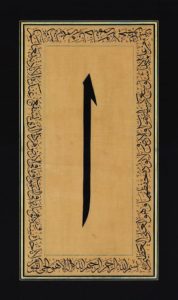 When will America collapse, who will do it and how will it be done?
When will America collapse, who will do it and how will it be done?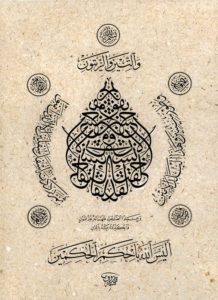 From many Ahadith we know two things about the system of the Dajjal (Allah’s curse be upon him), the first is that He will use it to place sanctions on Countries who dont follow Him, this is world wide economic dominance, the other is He will use a mixture of technology and Sihr (the occult) to trick people into converting to His false religion making them believe he is a god. The prophet (saws) said there will be forerunners to the Dajjal setting up His system for Him, meaning they will be doing the same things He is but to a lessor scale spreading these two methods of doing things around the world. The capitalist economic system that has strangled the world today and allowed countries to wipe out the entire wealth of a nation in a single day, is the first part of the system of the Dajjal.
From many Ahadith we know two things about the system of the Dajjal (Allah’s curse be upon him), the first is that He will use it to place sanctions on Countries who dont follow Him, this is world wide economic dominance, the other is He will use a mixture of technology and Sihr (the occult) to trick people into converting to His false religion making them believe he is a god. The prophet (saws) said there will be forerunners to the Dajjal setting up His system for Him, meaning they will be doing the same things He is but to a lessor scale spreading these two methods of doing things around the world. The capitalist economic system that has strangled the world today and allowed countries to wipe out the entire wealth of a nation in a single day, is the first part of the system of the Dajjal.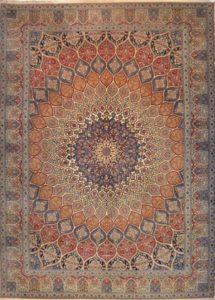 “The evil of mens actions hit or miss you in the spiritual world long before anything occurs in life”
“The evil of mens actions hit or miss you in the spiritual world long before anything occurs in life”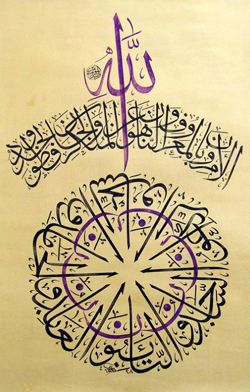 Supplication which should be read before reciting the Noble Qur’an
Supplication which should be read before reciting the Noble Qur’an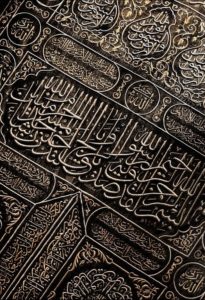 Masjid Al-Aqsa – The Second House of Allah on Earth
Masjid Al-Aqsa – The Second House of Allah on Earth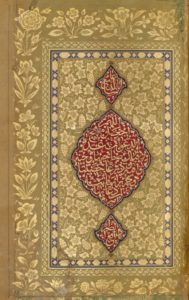
 1] On the authority of Abu Hurayrah (may Allah be pleased with him), who said that the Messenger of Allah (ﷺ) said:
1] On the authority of Abu Hurayrah (may Allah be pleased with him), who said that the Messenger of Allah (ﷺ) said: